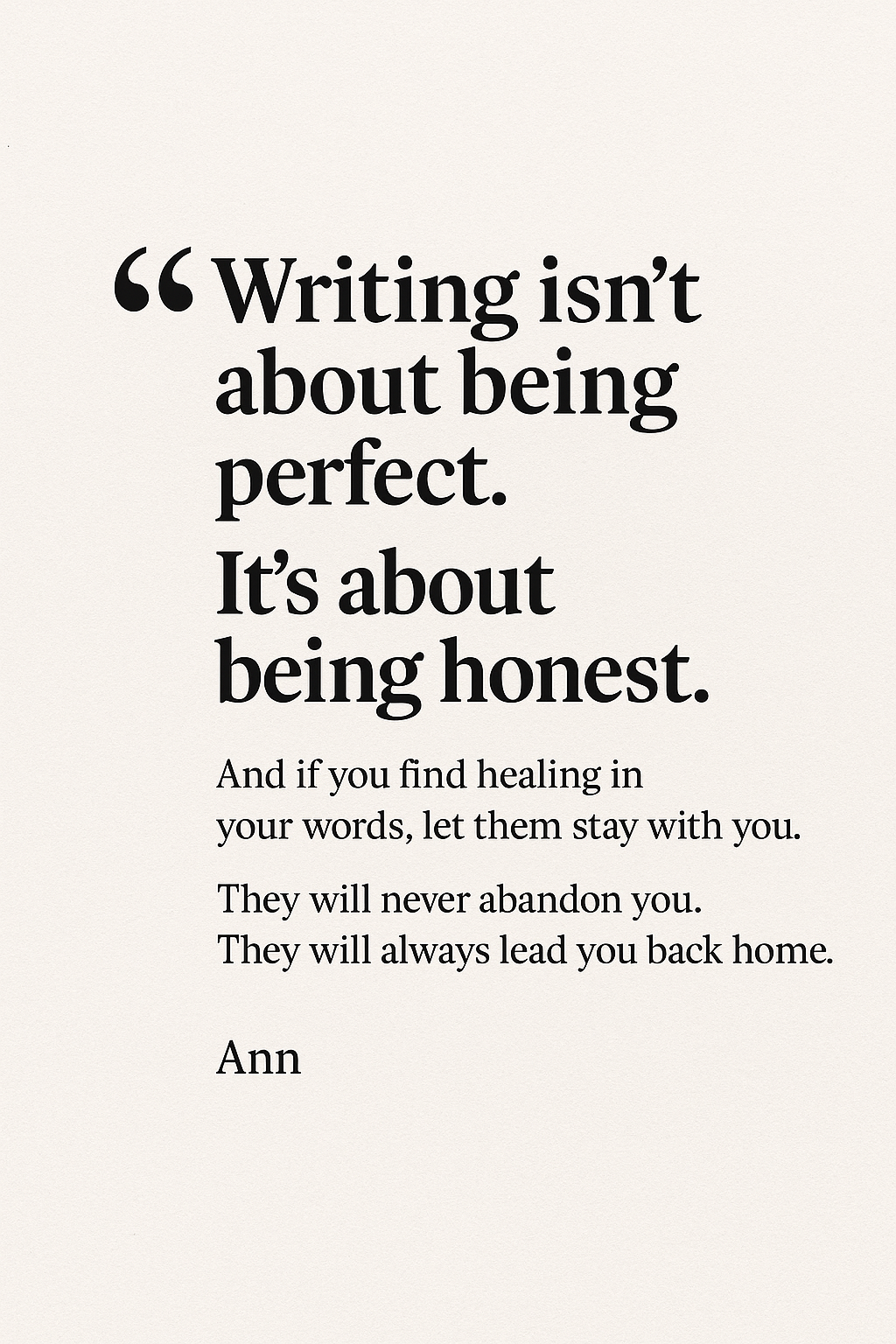The Words That Stayed: How Writing Grew With Me
I was in primary school when I first discovered journalism. It wasn’t something grand or glamorous. I didn’t know what “journalism” even meant back then. But I knew it felt right. I loved writing editorials about school programs, current events, or whatever topic our teacher gave us that week. At that age, I wasn’t aiming for impact. I just liked putting thoughts into sentences, making meaning out of moments.
That early exposure to writing became one of the best things I carried with me through life.
It didn’t end with assignments. I became a certified notebook hoarder. Lined pages, blank pages, graph paper, scented notebooks, sparkly ones with padlocks, I wanted them all. I wasn’t just collecting notebooks; I was collecting space for possibility. Each one represented something I might someday think or feel, a story I might want to remember, or a version of myself I didn’t yet know.
My love for writing wasn’t born from pressure. It was born from freedom. From the quiet thrill of being able to put something invisible, an emotion, a thought, a fear, into something real.
Writing was never just about jotting things down for me. It was a form of travel. I didn’t need money or permission to go places. All I needed was paper and a pen.
There was even a time when I considered taking Literature in college. But life had other plans. I ended up thriving in the tech world, solving problems, building systems, creating apps, and integrating tools. You’d think those two paths, literature and technology, are opposite poles. But I’ve found they’re deeply connected. Both require structure. Both require imagination. Both require the ability to see patterns and build something meaningful from chaos.
And writing? Writing stayed with me the entire time.
One of the earliest “magics” I remember was this: when I write something, I remember it better. Whether it was class lessons, grocery lists, or things I wanted to memorize, writing made it stick.
I recently read a study published in Psychological Science that confirms this, “writing by hand (especially for children) helps in encoding information more deeply than typing.” The same study showed “that adults who journal regularly experience reduced stress levels, improved memory retention, and increased emotional regulation“.
Basically, science backs up what we always knew intuitively: writing changes you.
Let’s rewind for a moment.
Remember those lock-and-key diaries we had as kids? The ones with rainbow covers and glitter pens? Each page started with “Dear Diary,” and everything felt sacred. Back then, we didn’t call it journaling. We were just trying to make sense of our feelings the only way we knew how, by writing them down.
Now that I’m older, writing has transformed from a childhood hobby into a healing ritual. It’s no longer just a thing I do, it’s part of how I live. My notebooks have become safe spaces. My journal is where my truest voice lives, unfiltered, uncensored, raw. Writing gives me room to fall apart and come back together. To reflect and reframe. To grieve and grow.
When I write now, it’s less about performance and more about presence.
It’s how I slow down my thoughts. It’s how I understand what I actually feel underneath the distractions. Sometimes, I’ll be halfway through a sentence before realizing, Oh, that’s what I’ve been carrying.
Writing holds that kind of power.
It invites stillness.
It restores clarity.
It reminds me I’m not just surviving, I’m experiencing.
There are pages I’ve written that have shocked me. Lines I didn’t know I needed to say. Feelings I’d buried for years rising to the surface in a single paragraph. That’s the thing about writing: it has a way of gently showing you the parts of yourself that need more love.
5 Key Takeaways from My Writing Journey
- Writing is a tool for memory and learning.
It’s proven to enhance comprehension, focus, and retention both in childhood and adulthood. It literally helps you think better. - Your childhood voice still matters.
Those “Dear Diary” entries were your first lessons in self-expression and emotional honesty. Don’t dismiss them. They were real and formative. - You don’t need to be a professional writer to benefit from writing.
Your notebook doesn’t care about grammar. It only cares about truth. - Writing bridges your past, present, and future selves.
It allows you to witness your own evolution over time, and reminds you of how far you’ve come. - Creativity and logic are not enemies.
Whether you’re in tech, finance, or any field, writing can still be a healing, grounding companion.
5 Simple Suggestions to Rekindle (or Begin) Your Writing Practice
- Start with “Today, I feel…”
Let that one line guide you into deeper reflection. It’s a great way to break through writer’s block. - Create a “Thought Parking Lot.”
Dedicate one notebook to brain-dumps. No rules. Just unload what’s swirling in your head. - Write one page before bed.
It doesn’t have to be structured. Just reflect on one thing you’re grateful for and one thing you want to release. - Print your entries quarterly.
It feels different when you hold your story in your hands. Bind them, read them, respect them. - Use writing as your decompression ritual.
Turn off notifications, make a cup of tea, and spend ten quiet minutes just with your pen and your mind. No performance, just presence.
So here’s your sign: Write again. Or for the first time.
Buy that notebook you’ve been eyeing. Scribble something random. Write like nobody’s watching, because nobody is. Writing isn’t about being perfect. It’s about being honest.
And if you find healing in your words, let them stay with you.
They will never abandon you.
They will always lead you back home.
-Ann


Leave a Reply